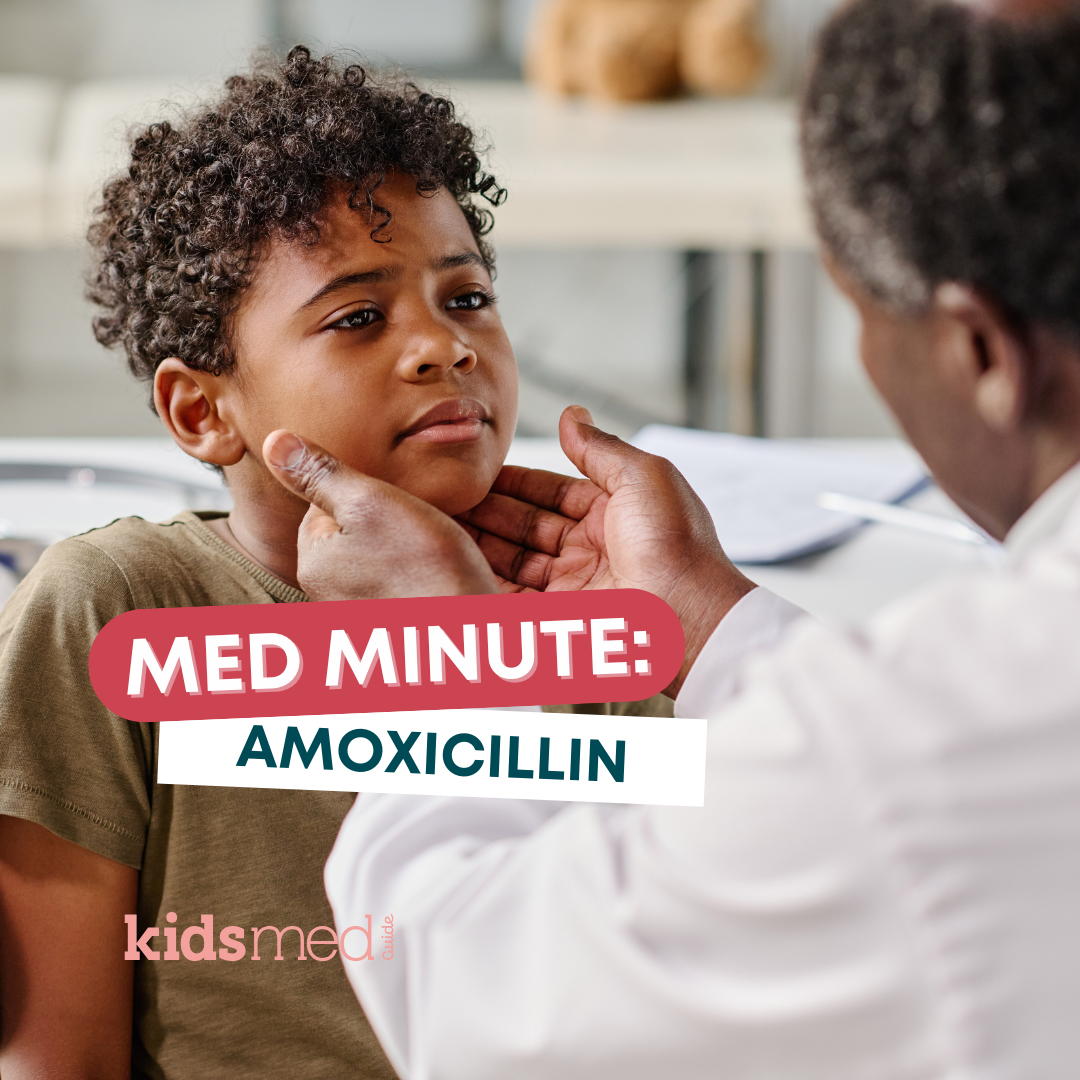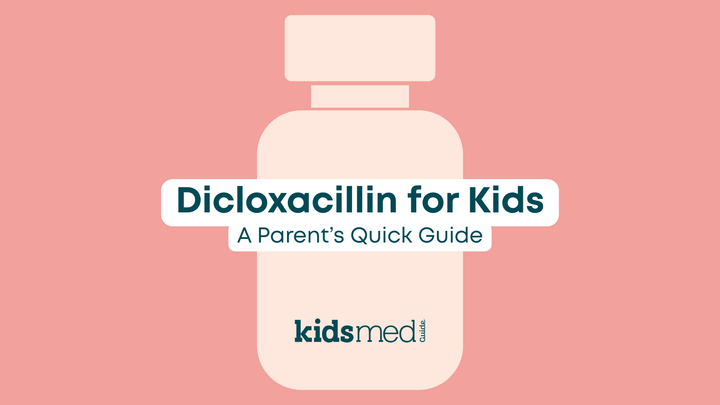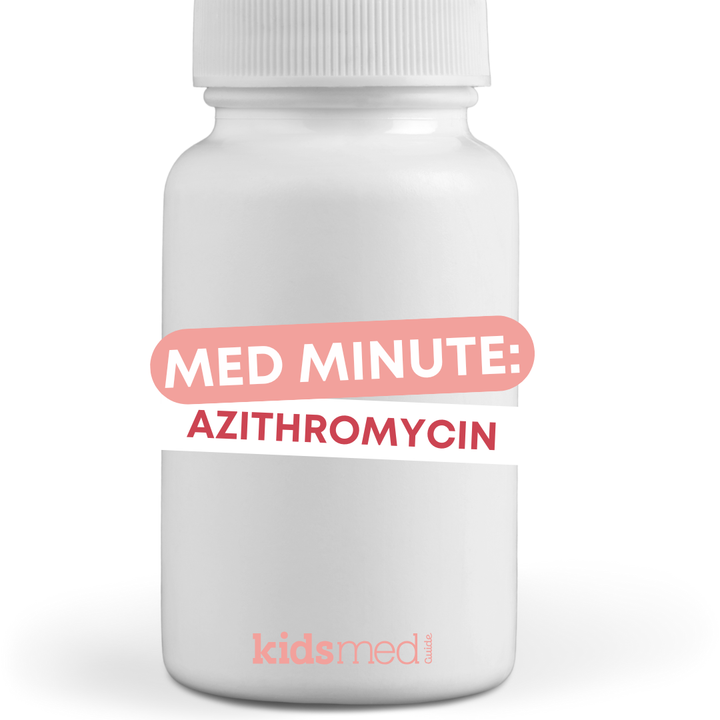Med Minute: Amoxicillin

In this Med Minute guide, we’re covering amoxicillin, a commonly prescribed antibiotic used to treat and prevent various bacterial infections. It works by stopping bacteria from growing and replicating, often requiring a 7 to 10-day course for full effectiveness. Keep reading for quick facts on uses, dosing, side effects, and tips for giving it to your child!
What's Amoxicillin Commonly Used For?
- Treating bacterial infections: ear infections, pneumonia, skin infections, urinary tract infections, strep throat, sinus infections, Lyme disease
- Preventing bacterial infections (prophylaxis): dental procedures, urinary tract infections, sickle cell disease
How Does Amoxicillin Work?
- It kills bacteria by preventing bacteria from building cell walls and preventing bacterial cells from replicating.
- Amoxicillin is a “time-dependent killer” that stops bacterial infections slowly, so therapy is often long, around 7-10 days.
What's The Dose of Amoxicillin?
- Varies depending on weight and what you are treating
- Typical doses are around 45 mg/kg/day (standard) or 90 mg/kg/day (high), up to standard adult doses of 500-1000 mg per dose
- The high-dose regimen is most commonly used for ear infections or pneumonia
- Usually given every 8 or 12 hours
What Are the Most Common Side Effects?
- Diarrhea, nausea, vomiting
- Headache
- Rash (mild to severe)
- Tooth discoloration
How Should My Child Take Amoxicillin?
- Take with or without food, taking with meals may reduce stomach upset
- Shake the suspension well and use the measuring device provided
- Store suspension in the refrigerator
- You can mix it with formula, juice, water, or milk, but make sure your child drinks the whole thing
The information in this guide does not include a comprehensive list of all possible side effects, contraindications, or warnings associated with drug use. This content is for educational and entertainment purposes only and aims to quickly provide caregivers with the most common counseling points for pediatric medications. It does not replace professional medical advice, nor does it supersede information found on a pharmacy label or drug package insert. Always read the complete package insert before administering medication to your child. Consult your healthcare provider for medical guidance, and call 911 in case of an emergency. Kids Med Guide is not liable for your interpretation or reliance on this material. You assume full responsibility for its use and any resulting decisions. For details, please see our Privacy Policy and Medical Content Policy.
The following reference was used to compile this information:
DailyMed—AMOXICILLIN powder, for suspension. (n.d.). Retrieved June 18, 2025, from https://www.dailymed.nlm.nih.gov/dailymed/drugInfo.cfm?setid=997650f9-7eff-64de-e053-2995a90a617b



